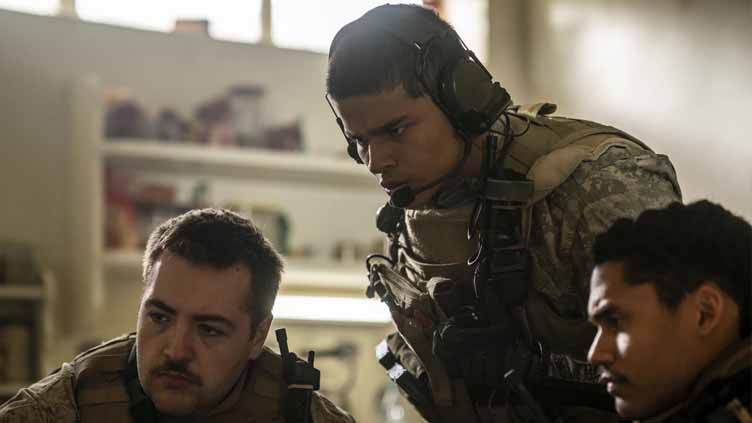Movie Review: 'Warfare,' a forensic portrait of combat, hunts war-movie clichés

Entertainment
“Warfare” aspires to be, simply, just that.
Ray Mendoza and Alex Garland ’s “Warfare” is more defined by what it isn’t than what it is.
In their Iraq War -set film, there’s never any description of a wider strategy. There are no backstories to the American Navy SEALs whom we follow on an unspectacular mission. There’s not a short monologue about mom’s cooking back home, let alone a speculative word about life after the war. There’s not even a dramatic close-up to be had.
“Warfare” aspires to be, simply, just that.
We are effectively embedded in a platoon on what seems to be a minor mission in Iraq in 2006. Walking in two single-file lines down a Ramadi street at night, one soldier says, “I like this house.” Under the cover of darkness, they rush inside the apartment building to set up their position while keeping the family inside quiet. In the morning, their sniper, laid out on a raised bed, sweats while looking out on an increasingly anxious scene. His rifle’s crosshairs drift through the street scenes outside, as suspected jihadists mobilize around them.
War-movie cliches have been rigorously rooted out of “Warfare,” a terse and chillingly brutal immersion in a moment of the Iraq War.
Clouds of IED smoke and cries of agony fill Garland and Mendoza’s film, with little but the faces of the SEALs to ground a nearly real-time, based-on-a-true-story dramatization. Few words are spoken outside the intense patter of official Navy jargon. When the mission comes to its bloody and hectic conclusion, the only utterance left hanging in the clouded air is the unanswered, blood-curdling shriek of a woman watching the men leave her bombed-out home: “Why?”


